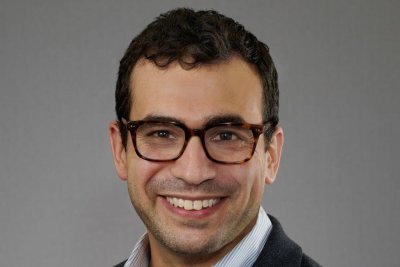Lawmakers clash over opt-outs in school lessons over religious beleifs

Yeshiva University Assistant Professor of Law Zalman Rothschild said in a congressional hearing Tuesday that he fears the Supreme Court decision on opting out of lessons over religious grounds could have broad implications and could be disruptive for education. Photo courtesy of Yeshiva University
WASHINGTON, Feb. 10 (UPI) — Some seven months after a Supreme Court Case gave parents sweeping rights to remove their children from lessons that violate religious beliefs, Republicans expresses concern Tuesday about school districts ignoring the ruling, while Democrats voiced fears that the ruling condoned discrimination.
”In a world where new and controversial types of content are finding their way into classrooms, it is essential that parents maintain control over their child’s education,” Rep. Kevin Kiley, R-Calif., said in a congressional hearing of the Subcommittee on Early Childhood, Elementary and Secondary Education, which he chairs.
In Mahmoud vs. Taylor, the high court ruled in June that Maryland parents had a First Amendment right to opt out their children from public school lessons involving LGBTQ+ themed storybooks that conflict with their religion. Tuesday’s hearing provided a venue for House members to reflect on how the ruling has changed classrooms.
Democrats, for example, voiced worries about the dangerous precedent it sets for censorship and exclusion.
”Inclusion is not indoctrination,” said the committee’s top Democrat, Rep. Suzanne Bonamici, D-Ore. “Differences exist in the world around us. and part of a good education includes teaching students about tolerance and understanding.”
Bonamici said Republicans are using parental rights as another means to undermine public education.
One witness, Yeshiva University Assistant Professor of Law Zalman Rothschild, said he fears the decision could have broad implications and could be disruptive for education.
”I have no idea how in any sense this can be bounded,” Rothschild said.
“For example, say a teacher tries to teach the value of nondiscrimination against religion and specifies its wrong to discriminate against Jews or against Muslims, and some parents have a problem with that because of their sincerely held religious beliefs, because Chapter 16 of Mark says that those who are not baptized are condemned,” he said.
Rep. Adelita Grijalva, D-Ariz., urged her Republican colleagues not take the ruling as permission to turn public schools into the “latest front in a culture war.”
Grijalva said Republicans were hypocritical to encourage federal involvement in education when they call themselves “the party that wants things to go back to the local level.”
“I want us to continue to support our duly locally elected school districts to make decisions about school curriculum,” Grijalva said.
Rep. Summer Lee, D-Pa., held up a children’s picture book from the Montgomery Area School District curriculum, “Uncle Bobby’s Wedding,” while she questioned witnesses. The story follows a young girl as she learns that her favorite uncle is getting married to his male partner, Jamie.
Lee said providing holistic education to American children became harder after the ruling.
“It’s about exploiting religious exemptions to shield children from the reality of queer people existing,” he said.
Conservative education groups, however, applauded the power shift in schools after the ruling.
“Two of the story books, not only “Uncle Bobby’s Wedding” but “Pride Puppy!” addressed non-binary individuals, drag queens and pride parades. These are individuals who don’t have a clear sense of their identity regarding whether they want to be a firefighter or a fairy when they grow up. What we’re dealing with is a designed attempt to change minds on perspectives,” said Sarah Perry, vice president of Defending Education, a national advocacy group that supports more parental involvement in schools.
Throughout the hearing, Bonamici tried to steer the conversation to “hearing topics that actually matter,” including ICE allegedly inflicting trauma in schools and the effects of the dismantling of the Department of Education.
She pointed out that the committee had yet to hold a hearing on gun violence in schools and that just Monday, a 16-year-old was shot at a Montgomery County Public School.
”No one is arguing that parents should not be involved in their children’s education. We all agree on that,” Bonamici said. “Banning books or preventing students from learning about differences only serves to perpetuate a culture of hatred and fear.”
